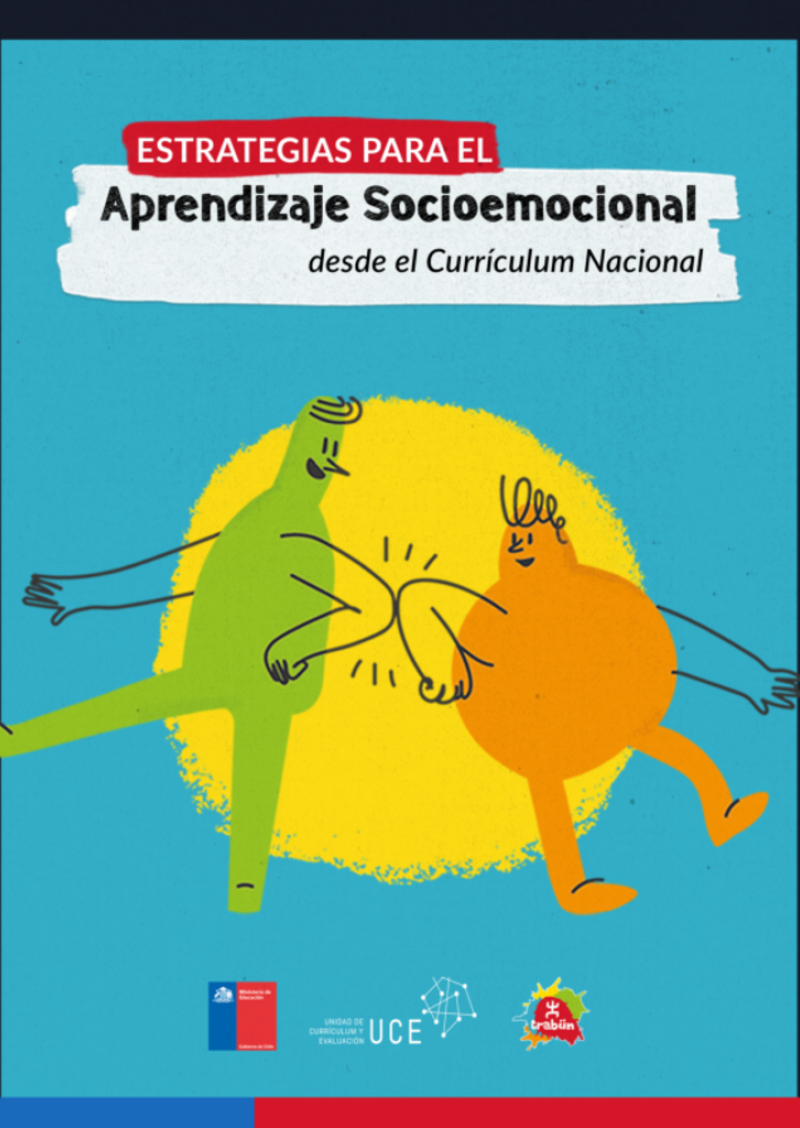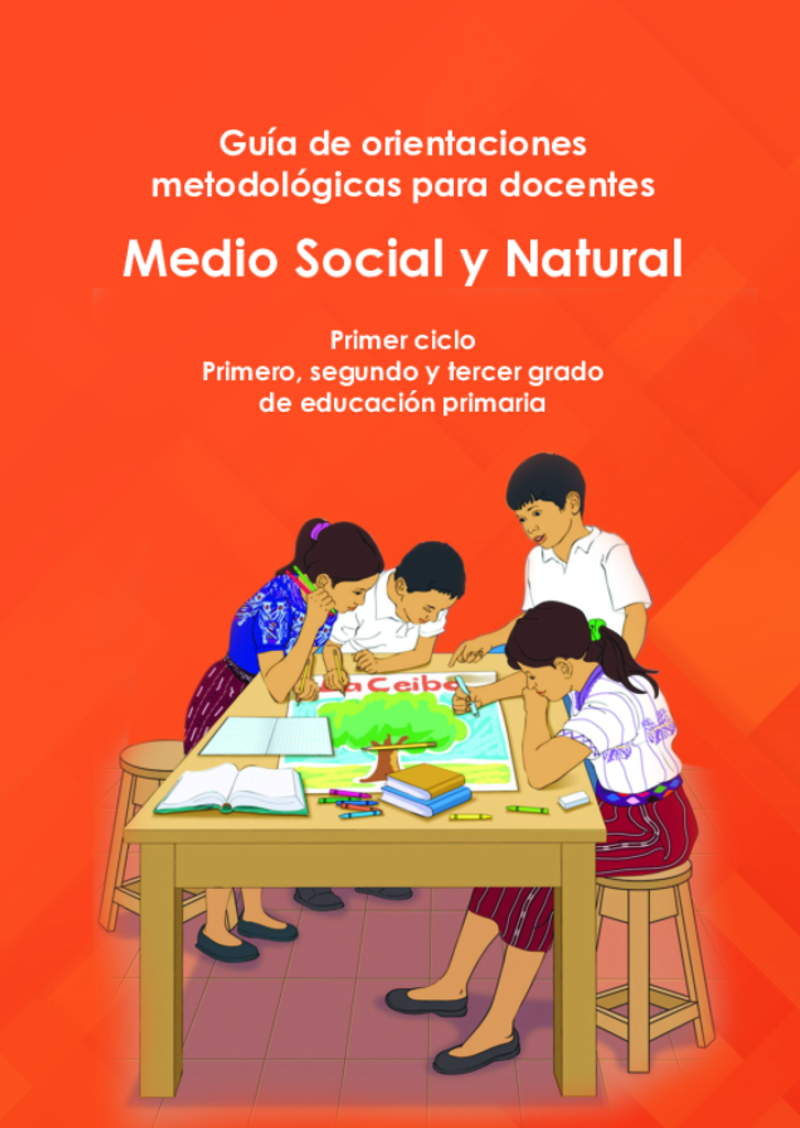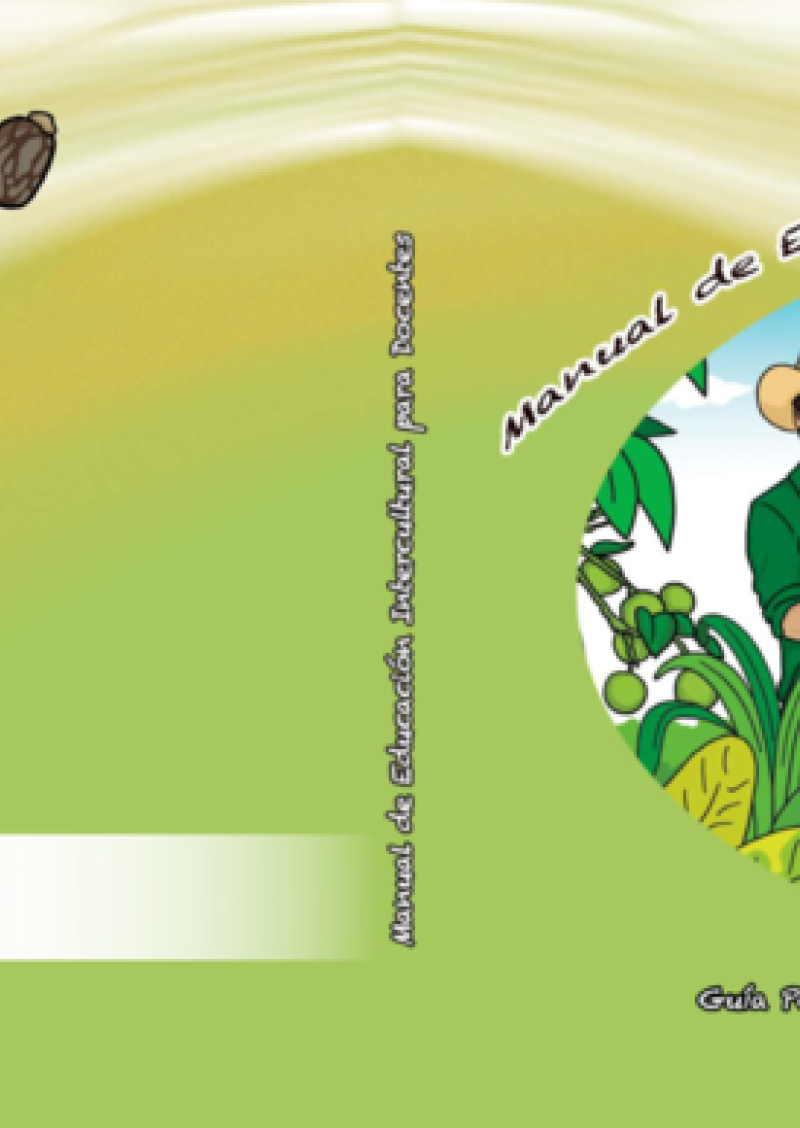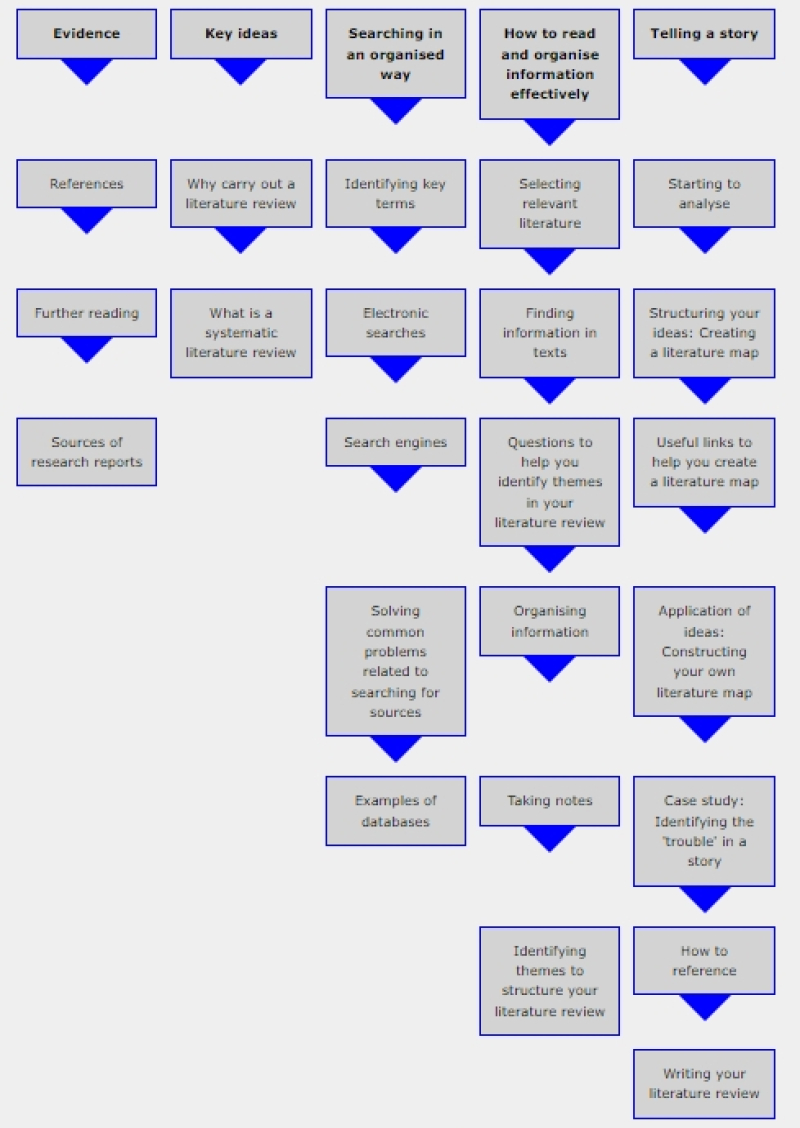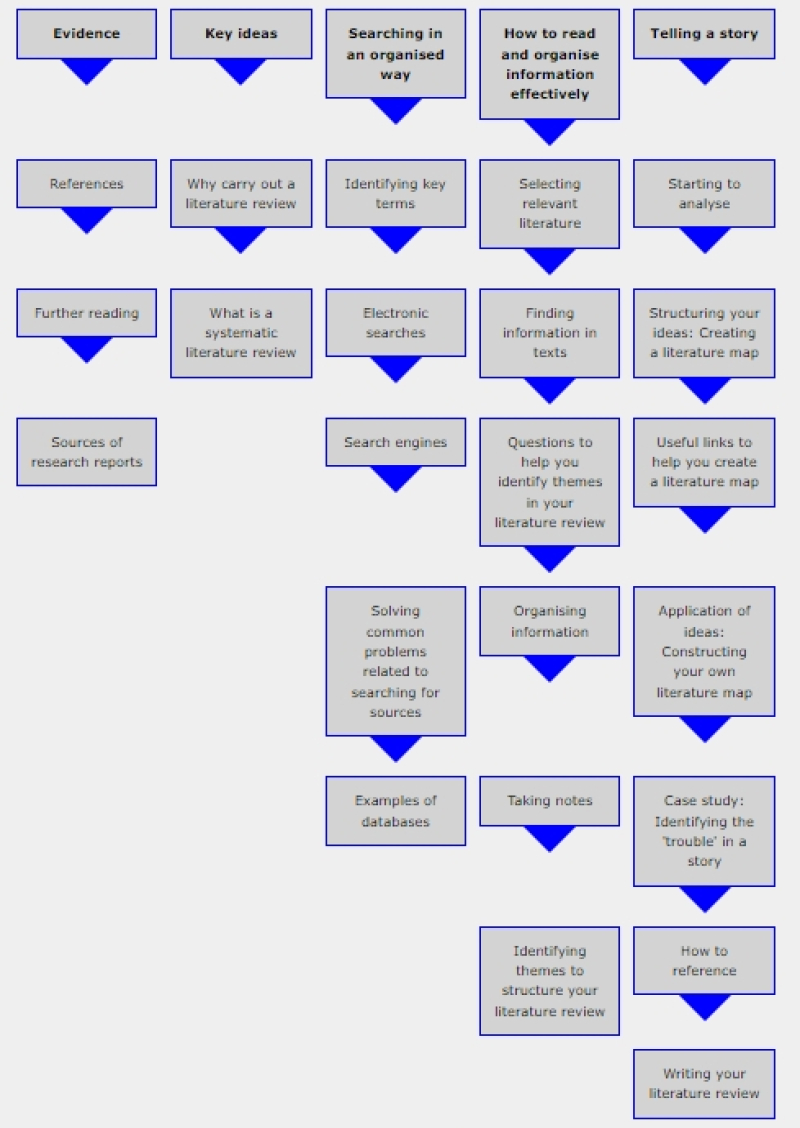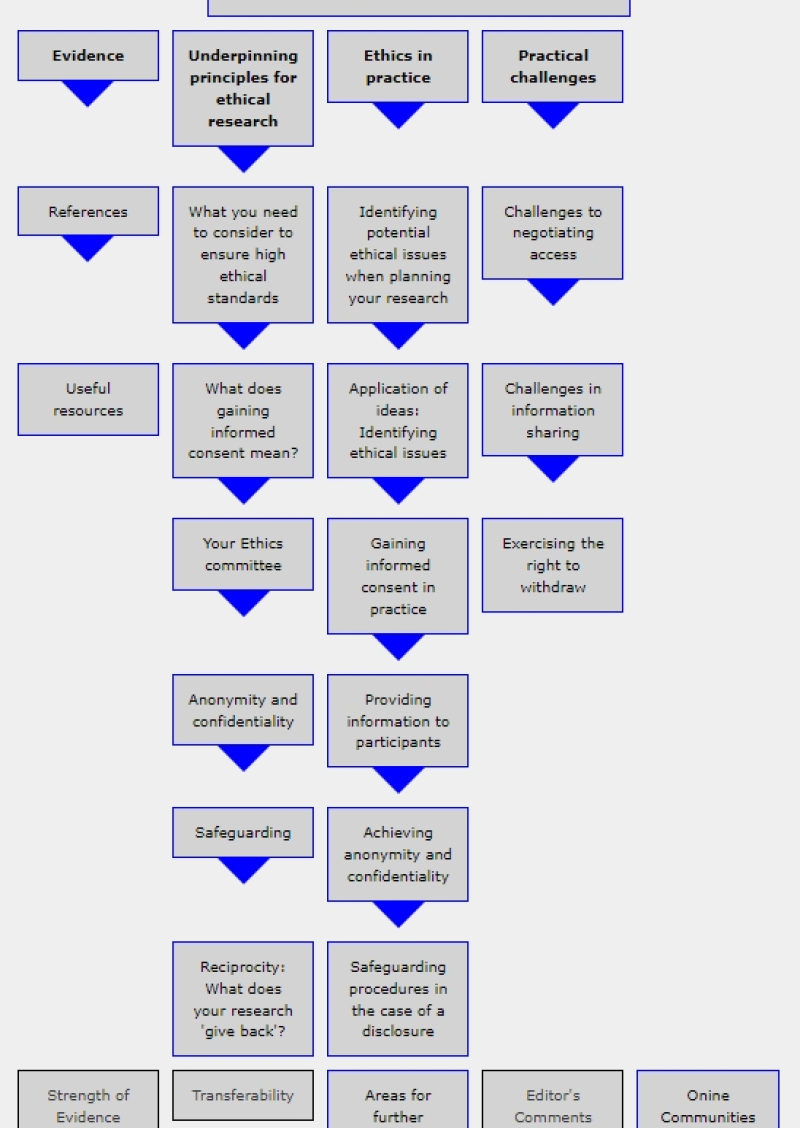Teacher Resource Centre
Displaying 1 - 6 of 6
Estrategias para el Aprendizaje Socioemocional desde el Currículum Nacional
Este manual ofrece a los docentes el contexto necesario para implementar el aprendizaje socioemocional en el aula. Proporciona una base teórica y se alinea con el currículum nacional chileno. Incluye ejemplos de actividades que pueden desarrollarse en diversas materias y espacios de la vida escolar, abarcando desde la educación primaria hasta la secundaria. El objetivo es facilitar la integración del aprendizaje socioemocional en las prácticas educativas diarias, promoviendo un ambiente escolar más inclusivo y comprensivo.
Guía de orientaciones metodológicas para docentes - Medio Social y Natural
El departamento de educación intercultural del Minsiterio de Educación de Guatemala publicó este paquete de recursos para que docentes trabajen con alumnos de primaria en contextos comunitarios indígenas (culturas xinka, maya, garífuna y ladino), abordando los ámbitos sociales y naturales. Proporciona herramientas didácticas e instrucciones para un desempeño efectivo en clase, con ejemplos de actividades. Estas herramientas buscan facilitar la enseñanza respetando la diversidad cultural del país.
Manual de Educación Intercultural para Docentes
Este Manual a destinación de los docentes propone actividades y talleres con enfoque en la interculturalidad para realizar en el aula. Se divide en cuatro apartados: identidad colectiva e individual; el conocimiento de la historia y de las distintas manifestaciones culturales para fomentar la paz en el país; estereotipos y prejuicios para combatir las discriminaciones y el racismo; e interculturalidad para valorizar la diversidad y la convivencia.
Research Methods: Developing your research design
This MESHGuide is designed to provide teachers with practical strategies to develop interesting and relevant research questions and to formulate a research design to engage in research-informed practice in their school or setting.
This MESHGuide draws on a range of key literature in the field of social science research, and it has been informed by lessons learned from the author's research. The guide aims to help teachers to:
- understand the purpose of a research design
- understand the significance of formulating a research question
- develop the initial focus of your research by exploring different potential starting points for this
- understand different ways of categorising research questions
- identify the characteristics of good research questions and apply these in practice
- develop and evaluate your own research questions
- operationalize your research aim so that you can develop appropriate research tools to answer your research questions by developing question-method connections in your own research
- improve your research data through understanding the nature of validity and reliability and exploration factors that could impact on these
Research Methods: Doing a literature review
This guide is designed to help teachers to:
- understand how to use other people’s writing to inform their own research;
- develop a strategy for carrying out a search of the literature;
- organise the themes logically;
- evaluate the research they read;
- think about the features of a reflective literature review and explore how to achieve this in practice
This MESHGuide draws on a range of key literature in the field of social science research. Also its design has been informed by lessons learned from the author's research, which has focused on the following areas:
- developing effective collaborative learning in science
- factors influencing learning through play in the early years
- student teachers’ engagement with research and its impact on their developing practice
- constructivist informed practice in science within initial teacher education
- creativity in learning and teaching.
Research Methods- Considering Ethics in your research
This MESHGuide draws on a range of key literature in the field of social science research ethics. It is designed to help teachers to:
- Understand the significance of ethical concerns in the research process
- Identify the nature of the ethical issues that may be of significance in the design and implementation of their research
- Develop their research design in a way that takes into account ethical considerations, so that their research is as ethical as possible
- Understand the complexity of the process of gaining informed consent and enable them to achieve this
- Reflect on the complexity of research ethics
